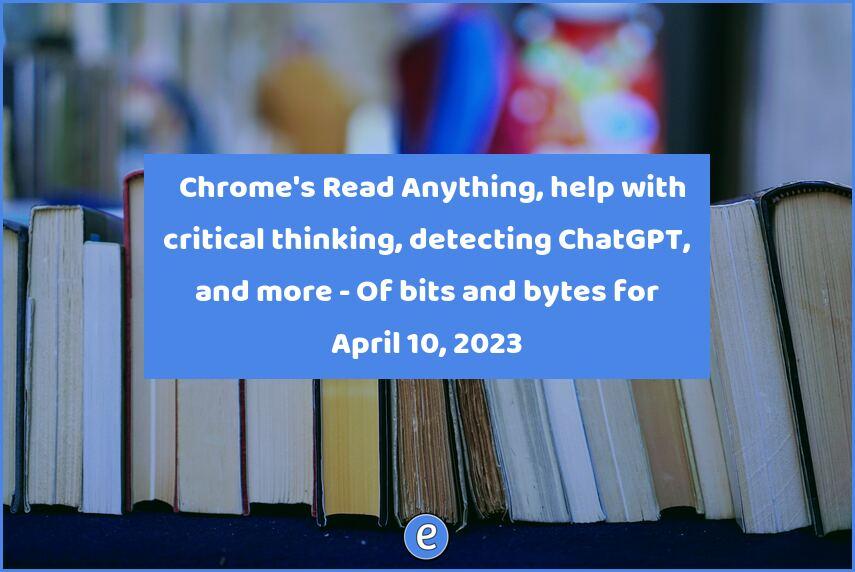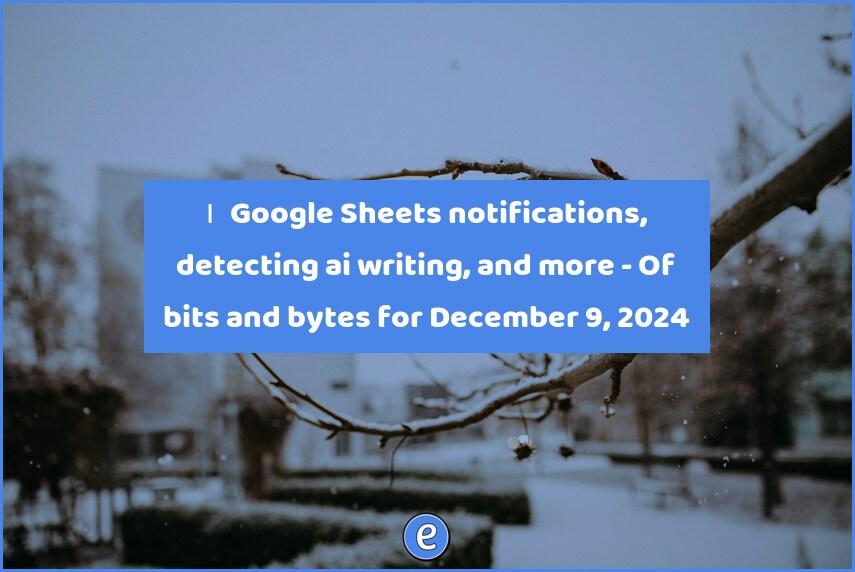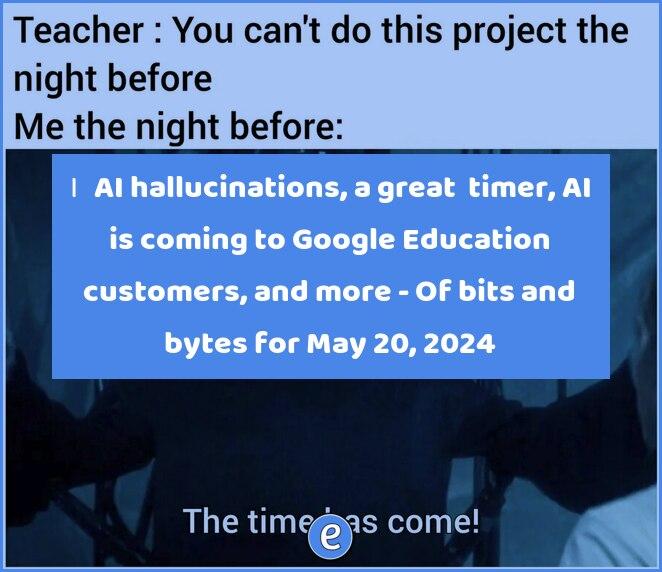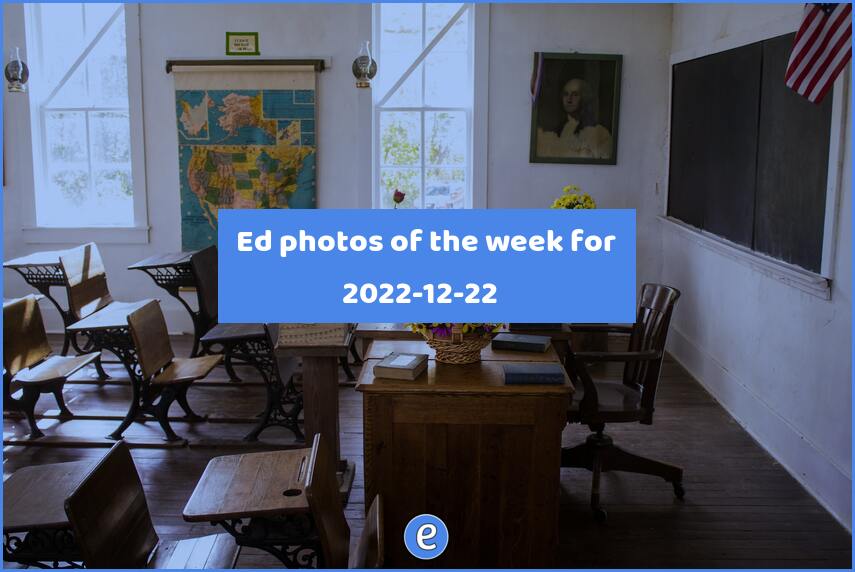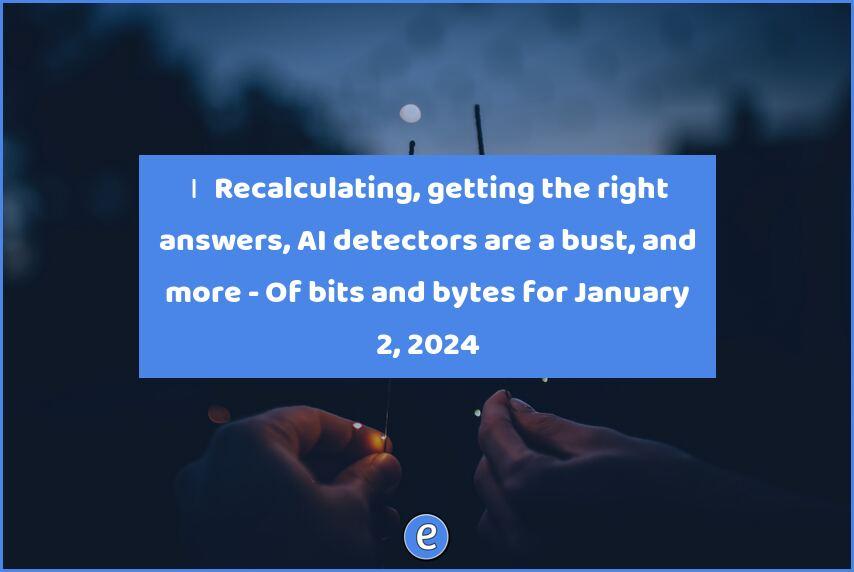📚 Chrome’s Read Anything, help with critical thinking, detecting ChatGPT, and more – Of bits and bytes for April 10, 2023
Internet Travels
Of bits and bytes is my weekly round up of interesting links and ideas I discovered on the internet. It is published on Mondays for the previous week
Apps
When I’m on a machine without an ad blocker I am in awe at just how many ads are thrown in your face on a website. Browsers have been adding reader modes to reduce the clutter, and here is how to use Read Anything in the ChromeOS 111 side panel. A nice addition!
After sharing The Free Learning List last week I found out that they have an entire online store with all sorts of things to help with critical thinking, The Thinking Shop!
Pedagogy
I scare myself sometimes with the articles I find interesting. This one about soil education is probably one of the strangest, but I love reading an article where the author is at the highest level of their field. While the article talks about how to educate others about soil, it has some fantastic advice for education in general.
But there is so much wonder and beauty hidden in soils that often goes unseen. We know this. Soils deserve our time, attention, and curiosity. That’s why I am building this collection. To help us all learn more about soils, one idea at a time.
We build knowledge this way. Learning happens just one idea at a time. More often than not, learning isn’t linear, but instead iterative and messy and random and spontaneous. Learning requires that we get comfortable being tangled in a web of ideas and carefully figuring out how each strand is to connected to the whole.
Preach it Dr. Yamina!
Technology
Turnitin is going to take a stab at detecting ChatGPT works, but it’s not going very well. Just because a computer tells you a student is cheating doesn’t mean the student actually is. I’ve had some stuff that I’ve written detected as AI generated, so it means that either the detection was wrong or my writing is robotic. I tend toward the latter.
When using AI generated works it is very important that you double-check any facts in the output. ChatGPT is pretty confident with what it outputs, and that doesn’t go well when it creates fake stories about real people.
Tips
Do you want some ideas on text prompts for ChatGPT? Alice Keeler has put together a list of 100 prompts. I’m also going to reiterate her advice at the top of the article, FACT CHECK EVERYTHING CHATGPT SPITS OUT. Like the smooth talking salesperson, ChatGPT will come across as the expert but DON’T TRUST IT!
Pop Culture
For April Fools Day The New York Times awarde Miller Roberts with their suggestion of synswer as the word of the day. Synswer is a portmanteau of synthetic and answer, as used to describe the output from an AI such as ChatGPT.
History
Posts from Eduk8.me from the past week
- Scanning documents directly to Google Drive (or other cloud storage) with an iPhone
- Quickly create pie charts, histograms, and line graphs online
� Ed photos of the week for April 6th, 2023
Extra Credit
Here are extra links that I found interesting that may or may not be education related or interesting to you and I didn’t want to lose them.
- How I teach Python on the Raspberry Pi 400 at the public library | Opensource.com
- Understanding Neuroplasticity Allows You to Set the Right Conditions to Prime Your Brain to Learn – The Best Brain Possible
- Neurodiversity at work – Second Step
- Canadian statistics professor games Tim Hortons contest for 80-98% win rates | Ars Technica
- Experts Say Some Teens Shouldn’t Live in Tiny Houses Alone
- It’s Work, Not Junior High – The New York Times
- Why more choice is not better for creativity | Rick Rubin – YouTube
- Experts Constantly Adapt and Change to Deliver Exceptional Results
- The “Fad Trap” of Progressive Education

Be sure to subscribe to my YouTube channel and join your fellow educators on the Eduk8me email list!
